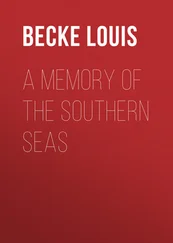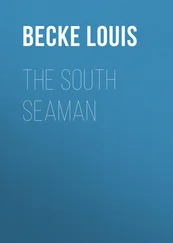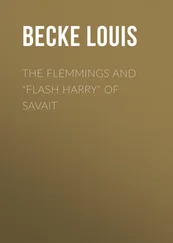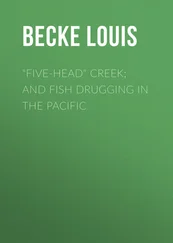Louis Becke - Edward Barry
Здесь есть возможность читать онлайн «Louis Becke - Edward Barry» — ознакомительный отрывок электронной книги совершенно бесплатно, а после прочтения отрывка купить полную версию. В некоторых случаях можно слушать аудио, скачать через торрент в формате fb2 и присутствует краткое содержание. Жанр: foreign_prose, literature_19, foreign_antique, на английском языке. Описание произведения, (предисловие) а так же отзывы посетителей доступны на портале библиотеки ЛибКат.
- Название:Edward Barry
- Автор:
- Жанр:
- Год:неизвестен
- ISBN:нет данных
- Рейтинг книги:4 / 5. Голосов: 1
-
Избранное:Добавить в избранное
- Отзывы:
-
Ваша оценка:
- 80
- 1
- 2
- 3
- 4
- 5
Edward Barry: краткое содержание, описание и аннотация
Предлагаем к чтению аннотацию, описание, краткое содержание или предисловие (зависит от того, что написал сам автор книги «Edward Barry»). Если вы не нашли необходимую информацию о книге — напишите в комментариях, мы постараемся отыскать её.
Edward Barry — читать онлайн ознакомительный отрывок
Ниже представлен текст книги, разбитый по страницам. Система сохранения места последней прочитанной страницы, позволяет с удобством читать онлайн бесплатно книгу «Edward Barry», без необходимости каждый раз заново искать на чём Вы остановились. Поставьте закладку, и сможете в любой момент перейти на страницу, на которой закончили чтение.
Интервал:
Закладка:
Louis Becke
Edward Barry / South Sea Pearler
CHAPTER I.
"EDWARD BARRY—'DEAD BROKE.'"
A wild, blustering day in Sydney, the Queen City of the Southern Seas. Since early morn a keen, cutting, sleet-laden westerly gale had been blowing, rattling and shaking the windows of the houses in the higher and more exposed portions of the town, and churning the blue waters of the harbour into a white seethe of angry foam as it swept outwards to the wide Pacific.
In one of the little bays, situated between Miller's Point and Dawe's Battery, and overlooked by the old-time Fort Phillip on Observatory Hill, were a number of vessels, some alongside the wharves, and others lying to their anchors out in the stream, with the wind whistling through their rain-soaked cordage. They were of all rigs and sizes, from the lordly Black Ball liner of a thousand tons to the small fore and aft coasting schooner of less than fifty. Among them all there was but one steamer, a handsome brig-rigged, black-painted and black-funnelled craft of fifteen hundred tons, flying the house flag of the Peninsular and Oriental Company. Steamers were rare in Sydney Harbour in those days (it was the year 1860), and the Avoca had pride of place and her own mooring buoy, for she was the only English mail boat, and her commander and his officers were regarded with the same respect as if they and their ship were the admiral and staff of the Australian squadron.
Leaning with folded arms upon one of the wharf bollards, and apparently oblivious of the driving sleet and cutting wind, a shabbily dressed man of about thirty years of age was looking, pipe in mouth, at the mail boat and the sailing vessels lying in the stream. There were four in all—the steamer, an American whaling barque, a small brig of about two hundred tons flying the Hawaiian Island colours, and a big, sprawling, motherly-looking full-rigged ship, whose huge bow ports denoted her to be a lumberman.
The man put his hand in his pocket and jingled together his few small remaining coins; then he turned away and walked along the wharf till he reached the side of a warehouse, the lee of which was sheltered from the wind and rain. He leant his back against the wall and again handled the coins.
"Seven shillings and two coppers," he said to himself, "and a waterman would want at least three shillings to pull round here from the Circular Quay in such nasty weather. No, Ted Barry, my boy, the funds won't run it. But that brig is my fancy. She's all ready for sea—all her boats up with the gripes lashed, and the Custom House fellow doing his dog-trot under the awning, waiting for the skipper to come aboard, and the tug to range alongside as soon as this howling gale takes off a bit. I'll wait here for another hour and watch for him."
Sitting under the lee of the wall, he again filled his pipe and began to smoke placidly, scanning with a seaman's eye the various vessels lying alongside the wharves.
Work had ceased for the day, the lumpers and longshore men had gone to their homes, and the usual idlers and loafers, which are always to be found in the immediate vicinity of shipping, or sitting about on the wharf stringers, fishing, had been driven away by the inclemency of the weather, or were gathered in small parties in the bars of the numerous public-houses near by. Now and then a seaman would be seen either returning to his ship or hurrying along the wharf towards the city with his coat collar turned up to his ears, and his hands thrust into the capacious pockets of his heavy jacket; the whole scene was miserable and depressing.
Presently a policeman appeared, walking slowly along under the shelter of the warehouse walls. He too was enjoying the luxury of a pipe, for there was no danger of running across the sergeant on such a day as this. As he drew near to the man who was sitting down he gave him a quick but apparently careless glance—a wharf policeman has a natural distrust of a man who keeps hanging about the stores and warehouses, doing nothing, or standing out in the open, exposed to the rain. But the guardian of the peace was satisfied that the object of his brief scrutiny was no loafer or possible burglar, and bade him a civil "Good-day," to which the man at once responded.
"It's beastly weather, isn't it?" said the official, as he leant against the wall, evidently disposing himself for a chat.
"It is indeed," replied the other, "and it's getting dirtier still over there to the south-east."
"That's pleasant for me. I don't get relieved until midnight, and this beat here is none too pleasant a one on a dark night, believe me."
"So I should imagine. I'll be glad to get back into the city as soon as I can; but I'm waiting here to see if I can get aboard that little brig over there. Do you know her name?"
"Yes. She's the Mahina , a South Sea trader. But I don't see how you can get off to her, there's no waterman here, and none of her boats will come ashore—I can tell you that much for certain. The captain is on shore looking for men, and those who are aboard won't be given a chance to put foot in a boat."
"Why, anything gone wrong aboard?"
"Rather! There's been a lot of trouble with the men, though there hasn't been any court work over it. The captain and mate are holy terrors—regular brutes, I'm told. Six of the hands swam ashore a few nights ago and got clean away, poor beggars. You ain't thinking of joining her, are you?"
"Indeed I am. I want a ship pretty badly. I'm broke."
"Well, don't ship on that craft, young fellow, take my advice. Are you dead, stony broke?"
"Pretty near, all but a few shillings. And I find it hard to get a ship—that is, the sort of ship I want. I've been in the South Sea trade a couple of years, and I like it."
"Ah, I see. Well, you know best, mister. I daresay you'll see the Mahina's captain coming down the wharf before it gets dark. He's a little, dark-faced, good-looking chap, with a pointed beard. I wish you luck, anyway."
"Thank you," said Barry, as he returned the policeman's good-natured nod and watched him saunter off again towards the end of the wharf.
Half an hour later five men appeared, all walking quickly towards the spot where Barry was still patiently waiting. The man who was leading he at once recognized as the captain of the brig—the four who followed at his heels were common seamen by their dress, and ruffians of the first water by their appearance. Each carried a bundle under his arm, and one a small chest on his shoulder; he was evidently the wealthy man of the lot.
Stepping out from under the shelter of the wall, Barry stood in the centre of the path, and waited the captain's approach.
"Are you in want of hands, sir?" he asked, touching his cap. The master of the brig gave him a swift, searching glance from head to feet, and then without answering the inquiry he turned to his followers.
"Go on to the end of the wharf. Hail the brig to send a boat ashore, and then wait for me." His voice was clear and sharp, but not unpleasant. The four men shuffled off, and the moment they were out of hearing he addressed himself to Barry.
"I've just found all the men I want, but I could do with another—if he is anything better than such things as those," and he nodded contemptuously at the figures of the four seamen. Then with lightning-like rapidity of utterance he asked, "You're not a foremast hand?"
"I want to ship before the mast," was the quiet answer.
"Got a mate's or second mate's certificate?"
"Yes; both."
"Last ship?"
"The Tawera , brig, of Tahiti."
"Ha! You're used to the Island trade, then?"
"Pretty well."
"Willing to ship as mate or second mate?"
"Yes, and no. Willing enough in one way, and not liking it in another. I'm hard-up, have no clothes, and should cut a sorry figure on such a smart-looking brig as yours when I haven't even a donkey's breakfast 1 1 A now almost obsolete nautical expression for a mattress staffed with straw.
to bring aboard if I shipped before the mast. And I'm not the man to stand guying, especially from beauties like those who were here just now."
Интервал:
Закладка:
Похожие книги на «Edward Barry»
Представляем Вашему вниманию похожие книги на «Edward Barry» списком для выбора. Мы отобрали схожую по названию и смыслу литературу в надежде предоставить читателям больше вариантов отыскать новые, интересные, ещё непрочитанные произведения.
Обсуждение, отзывы о книге «Edward Barry» и просто собственные мнения читателей. Оставьте ваши комментарии, напишите, что Вы думаете о произведении, его смысле или главных героях. Укажите что конкретно понравилось, а что нет, и почему Вы так считаете.












